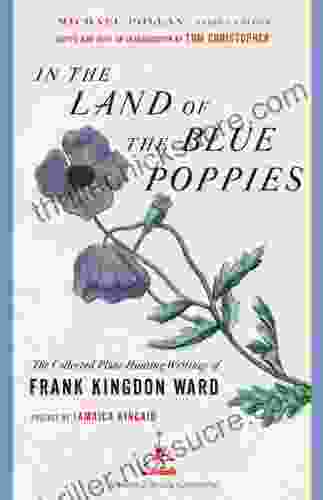Oxytocin: The Hormone of Closeness

4.8 out of 5
| Language | : | English |
| File size | : | 2167 KB |
| Text-to-Speech | : | Enabled |
| Screen Reader | : | Supported |
| Enhanced typesetting | : | Enabled |
| Word Wise | : | Enabled |
| Print length | : | 192 pages |
| Lending | : | Enabled |
In the realm of human emotions and relationships, there exists a powerful hormone known as oxytocin. Dubbed the "love hormone," oxytocin plays a significant role in social behavior, bonding, and intimacy. This article delves into the fascinating world of oxytocin, exploring its effects, health benefits, and its impact on our social interactions.
Oxytocin: The Biochemistry of Closeness
Oxytocin is a neuropeptide, a small protein molecule synthesized in the hypothalamus and released from the pituitary gland. It is primarily responsible for regulating social behavior, reproduction, and lactation. Oxytocin's molecular structure consists of nine amino acids and is synthesized as a part of a larger precursor molecule called oxytocin-neurophysin I.
The Effects of Oxytocin
Oxytocin exerts a wide range of effects on our physiology and behavior. Its primary actions include:
- Social bonding: Oxytocin facilitates social behavior by fostering empathy, trust, and cooperation. It enhances our ability to understand others' emotions, leading to stronger social bonds and relationships.
- Intimacy: Oxytocin is crucial for the development and maintenance of intimate relationships. It promotes physical and emotional closeness, trust, and sexual arousal.
- Stress relief: Oxytocin has calming and anti-anxiety effects. It reduces stress levels, promotes relaxation, and enhances feelings of calmness and well-being.
- Lactation: Oxytocin triggers the release of milk from the mammary glands, a process necessary for breastfeeding.
- Uterine contractions: Oxytocin stimulates uterine contractions during labor, leading to the expulsion of the fetus.
Health Benefits of Oxytocin
In addition to its effects on social behavior and intimacy, oxytocin has been linked to several health benefits, including:
- Reduced inflammation: Oxytocin has anti-inflammatory properties and may reduce systemic inflammation, which is linked to various health conditions.
- Improved cardiovascular health: Oxytocin may lower blood pressure and improve heart function, potentially reducing the risk of cardiovascular disease.
- Enhanced mood: Oxytocin has mood-boosting effects and may alleviate symptoms of depression and anxiety.
- Reduced pain perception: Oxytocin has analgesic properties and may reduce the perception of pain, particularly during childbirth and social stress.
- Improved wound healing: Oxytocin may accelerate wound healing by promoting tissue repair and reducing inflammation.
Ways to Increase Oxytocin Levels
There are several ways to naturally increase oxytocin levels, including:
- Physical contact: Hugging, kissing, and cuddling release oxytocin.
- Social interactions: Spending time with loved ones, engaging in meaningful conversations, and participating in group activities can boost oxytocin levels.
- Meditation and mindfulness: Practicing mindfulness and meditation techniques has been shown to increase oxytocin production.
- Exercise: Regular physical activity, especially aerobic exercise, can elevate oxytocin levels.
- Spicy foods: Consuming spicy foods, such as chili peppers and cayenne pepper, can trigger the release of oxytocin.
Therapeutic Applications of Oxytocin
Given its wide range of effects, oxytocin has therapeutic potential in several areas:
- Social and emotional disorders: Oxytocin may be used to treat conditions such as autism spectrum disorder, anxiety, and depression by improving social behavior and reducing stress.
- Childbirth: Oxytocin is commonly used to induce or augment labor by stimulating uterine contractions.
- Lactation: Oxytocin is administered to stimulate milk production in women who experience difficulty breastfeeding.
- Wound healing: Oxytocin may be used as an adjunct therapy to promote wound healing and reduce inflammation.
Oxytocin, the hormone of closeness, plays a vital role in our social interactions, relationships, and overall well-being. Its ability to foster bonding, reduce stress, and promote health makes it an essential component of human physiology. Understanding the effects and benefits of oxytocin can empower us to cultivate stronger relationships, enhance our emotional resilience, and improve our physical health. As research into oxytocin continues, we can expect to uncover even more of its multifaceted nature and therapeutic potential.
4.8 out of 5
| Language | : | English |
| File size | : | 2167 KB |
| Text-to-Speech | : | Enabled |
| Screen Reader | : | Supported |
| Enhanced typesetting | : | Enabled |
| Word Wise | : | Enabled |
| Print length | : | 192 pages |
| Lending | : | Enabled |
Do you want to contribute by writing guest posts on this blog?
Please contact us and send us a resume of previous articles that you have written.
 Fiction
Fiction Non Fiction
Non Fiction Romance
Romance Mystery
Mystery Thriller
Thriller SciFi
SciFi Fantasy
Fantasy Horror
Horror Biography
Biography Selfhelp
Selfhelp Business
Business History
History Classics
Classics Poetry
Poetry Childrens
Childrens Young Adult
Young Adult Educational
Educational Cooking
Cooking Travel
Travel Lifestyle
Lifestyle Spirituality
Spirituality Health
Health Fitness
Fitness Technology
Technology Science
Science Arts
Arts Crafts
Crafts DIY
DIY Gardening
Gardening Petcare
Petcare Brett Hull
Brett Hull Grace Friedman
Grace Friedman Mohammad F Anwar
Mohammad F Anwar Warren Hansen
Warren Hansen Malcolm Hebron
Malcolm Hebron Bonnie Henderson
Bonnie Henderson Chuanwei Li
Chuanwei Li Bret Stetka
Bret Stetka John Mclachlan
John Mclachlan Jeremy Bradstreet
Jeremy Bradstreet Jeannette De Wyze
Jeannette De Wyze Nathan Halberstadt
Nathan Halberstadt St Teresa Of Avila
St Teresa Of Avila Inge Bell
Inge Bell Stephen Wood
Stephen Wood Richard Hingley
Richard Hingley Loan Le
Loan Le Juliet Miller
Juliet Miller Steve Guest
Steve Guest Kindle Edition
Kindle Edition Scott Haines
Scott Haines Rob Coppolillo
Rob Coppolillo Worth Books
Worth Books Karen Wilkinson
Karen Wilkinson Ji Kim
Ji Kim Fritjof Capra
Fritjof Capra Hal R Varian
Hal R Varian Michael Shaw
Michael Shaw Steve Wiegand
Steve Wiegand Janae M Robinson
Janae M Robinson Tobe Melora Correal
Tobe Melora Correal Jay H Lefkowitch
Jay H Lefkowitch Dr Nanhee Byrnes
Dr Nanhee Byrnes Marco Polo
Marco Polo Robert Ullman
Robert Ullman Joan Nathan
Joan Nathan Shannon Warden
Shannon Warden Rachel Love Nuwer
Rachel Love Nuwer Krishna Godhania
Krishna Godhania Richard A Jaffe
Richard A Jaffe Jonathan Grix
Jonathan Grix D Enette Larson Meyer
D Enette Larson Meyer O S Hawkins
O S Hawkins Mark Howard
Mark Howard Steve Oakes
Steve Oakes Frederick L Coolidge
Frederick L Coolidge Rich Cohen
Rich Cohen Adam Night
Adam Night Damien Cox
Damien Cox Cal Ripken
Cal Ripken Brittany Cavallaro
Brittany Cavallaro Peter Allison
Peter Allison Kate S Martin
Kate S Martin Jeanne Ellis Ormrod
Jeanne Ellis Ormrod Tim Falconer
Tim Falconer Samuel Greenberg
Samuel Greenberg David Hackett Fischer
David Hackett Fischer Jackson T Markbrown
Jackson T Markbrown Melanie Challenger
Melanie Challenger Mitchel P Roth
Mitchel P Roth Mark J Ferrari
Mark J Ferrari Ron Lieber
Ron Lieber Martin A Lee
Martin A Lee Edith Hall
Edith Hall Brett Stewart
Brett Stewart Lee Alan Dugatkin
Lee Alan Dugatkin Michael Sullivan Iii
Michael Sullivan Iii Estelle Dautry
Estelle Dautry Christopher Ketcham
Christopher Ketcham Jessica Minahan
Jessica Minahan Miguel Crespo
Miguel Crespo Claudia Gray
Claudia Gray Sandy Jones
Sandy Jones Rob Vollman
Rob Vollman Genevieve Bardwell
Genevieve Bardwell Claudia M Gold
Claudia M Gold Laura A Jana
Laura A Jana David Sinclair
David Sinclair D Levesque
D Levesque Sriman Sharma
Sriman Sharma Xavier Wells
Xavier Wells John M Taylor
John M Taylor Chukwuma Eleodimuo
Chukwuma Eleodimuo Joyce Harper
Joyce Harper Charles Wilson
Charles Wilson Charlie Francis
Charlie Francis Steve Schwartz
Steve Schwartz Ronald M Rapee
Ronald M Rapee Emil Frlez
Emil Frlez Kazumi Tabata
Kazumi Tabata Keith Ammann
Keith Ammann David Mcclung
David Mcclung Avery Faigenbaum
Avery Faigenbaum Santari Green
Santari Green Dr Monique Thompson Dha Lpc
Dr Monique Thompson Dha Lpc Ethan Bezos
Ethan Bezos Paul Farmer
Paul Farmer Cheryl Diamond
Cheryl Diamond Wilborn Hampton
Wilborn Hampton Joseph Burbridge
Joseph Burbridge Matt Doeden
Matt Doeden Jodi Aman
Jodi Aman Marc J Reilly
Marc J Reilly Marc Bona
Marc Bona Mick Conefrey
Mick Conefrey Christopher Clarey
Christopher Clarey Paula Span
Paula Span M A Hayat
M A Hayat Kalynn Bayron
Kalynn Bayron Charles Todd
Charles Todd Daniel Dell Uomo
Daniel Dell Uomo Cindy Margolis
Cindy Margolis Jules Wake
Jules Wake Einat L K
Einat L K Carol Kaesuk Yoon
Carol Kaesuk Yoon E L Konigsburg
E L Konigsburg Rory D Nelson
Rory D Nelson Gerson S Sher
Gerson S Sher Jameswesley Rawles
Jameswesley Rawles Kyle Rohrig
Kyle Rohrig Eze Ugbor
Eze Ugbor John D Couch
John D Couch John A Fortunato
John A Fortunato Dave Cutcher
Dave Cutcher Peter Wacht
Peter Wacht Kicki Hansard
Kicki Hansard Colette Harris
Colette Harris Iwan Rhys Morus
Iwan Rhys Morus Jp Lepeley
Jp Lepeley Nick Heil
Nick Heil Robert Wright
Robert Wright Steven Verrier
Steven Verrier Masaaki Kijima
Masaaki Kijima Scott Reed
Scott Reed Kathleen Bartholomew
Kathleen Bartholomew Cecilia Twinch
Cecilia Twinch Tadashi Yoshimura
Tadashi Yoshimura Kira Breed Wrisley
Kira Breed Wrisley Daniel Vaughan
Daniel Vaughan Patrick Carnes
Patrick Carnes John Cooper
John Cooper Peggy Tharpe
Peggy Tharpe Karen Ward Mahar
Karen Ward Mahar Roach Mary
Roach Mary Chase Hassen
Chase Hassen Sam Sorbo
Sam Sorbo Zigzag English
Zigzag English Howtodressage
Howtodressage Scott Zimmerman
Scott Zimmerman Patty Wipfler
Patty Wipfler Nora Roberts
Nora Roberts Rick Steves
Rick Steves Kathleen Cushman
Kathleen Cushman J Wayne Fears
J Wayne Fears Daniel Bergner
Daniel Bergner Peter Zuckerman
Peter Zuckerman Carlo Zen
Carlo Zen Jonti Marks
Jonti Marks F Brent Neal
F Brent Neal Brion Toss
Brion Toss Brian Gewirtz
Brian Gewirtz Samantha Michaels
Samantha Michaels Salima Ikram
Salima Ikram Bernard Darwin
Bernard Darwin Natalia Ilyin
Natalia Ilyin Rachel Mcgrath
Rachel Mcgrath Jeanne Flavin
Jeanne Flavin Don Brown
Don Brown Luis Preto
Luis Preto Diana J Mason
Diana J Mason Rosalyn Sheehy
Rosalyn Sheehy Soong Chan Rah
Soong Chan Rah Mike Weatherstone
Mike Weatherstone Peggy Kaye
Peggy Kaye David Levithan
David Levithan Rahul Jandial
Rahul Jandial Lenore Skenazy
Lenore Skenazy Dinesh Kumar Goyal
Dinesh Kumar Goyal Renee Jain
Renee Jain Paul Carus
Paul Carus Emilee Day
Emilee Day Kara Forney
Kara Forney Vincent W Davis
Vincent W Davis Stephanie Sarkis
Stephanie Sarkis Rich Osthoff
Rich Osthoff Michael Barkun
Michael Barkun Nancy Boyd Franklin
Nancy Boyd Franklin Eric R Dodge
Eric R Dodge Sunil Tanna
Sunil Tanna Dr Lena Edwards
Dr Lena Edwards Brian Kilmeade
Brian Kilmeade Jackie Freeman
Jackie Freeman Leslie Valiant
Leslie Valiant Esther Hicks
Esther Hicks Danny Staple
Danny Staple Sara Gaviria
Sara Gaviria Thao Te
Thao Te Nate Allen
Nate Allen Brian Everitt
Brian Everitt Keith Foskett
Keith Foskett Mike Eastman
Mike Eastman Jeannie Burlowski
Jeannie Burlowski Karl F Kuhn
Karl F Kuhn Jacob Boehme
Jacob Boehme Eric C Lindstrom
Eric C Lindstrom Erin Mckittrick
Erin Mckittrick Nibedit Dey
Nibedit Dey John Moren
John Moren Sean Michael Wilson
Sean Michael Wilson William Trubridge
William Trubridge Richard Kasper
Richard Kasper Carol Walters
Carol Walters S Connolly
S Connolly Harry Bauld
Harry Bauld Elizabeth Davis
Elizabeth Davis Kevin Alexander
Kevin Alexander Jay Asher
Jay Asher Keith Ryan Cartwright
Keith Ryan Cartwright Jd Tanner
Jd Tanner Bruce Macdonald
Bruce Macdonald Porter Shimer
Porter Shimer Clyde Soles
Clyde Soles Nadim Saad
Nadim Saad D S Malik
D S Malik Tyler Hamilton
Tyler Hamilton Terence Tao
Terence Tao Maurice Herzog
Maurice Herzog James Dean
James Dean Manfred Theisen
Manfred Theisen James O Prochaska
James O Prochaska Stephen Hawking
Stephen Hawking David Jason
David Jason Smart Edition
Smart Edition Debra Fine
Debra Fine Gerald L Schroeder
Gerald L Schroeder Vicki Franz
Vicki Franz Denise Long
Denise Long Milne Cc Pocock
Milne Cc Pocock Douglas R Hofstadter
Douglas R Hofstadter Paula Brackston
Paula Brackston Kenneth Paul Rosenberg
Kenneth Paul Rosenberg David Flanagan
David Flanagan John Monaghan
John Monaghan Larry A Yff
Larry A Yff Joe Grant
Joe Grant Elwyn Hartley Edwards
Elwyn Hartley Edwards James Miller
James Miller Roman Gurbanov
Roman Gurbanov Mark William
Mark William Joseph Ewing
Joseph Ewing Nicholas S Howe
Nicholas S Howe Jimmie Holland
Jimmie Holland Guido W Imbens
Guido W Imbens Grace Mariana Rector
Grace Mariana Rector Lisa Scottoline
Lisa Scottoline Lucas Chancel
Lucas Chancel Joanne M Flood
Joanne M Flood John Fraser Hart
John Fraser Hart Linda Carter
Linda Carter Douglas Wood
Douglas Wood Leigh Pearson
Leigh Pearson David Barrie
David Barrie Jacqueline Houtman
Jacqueline Houtman Scott Jurek
Scott Jurek Ksenia K
Ksenia K Michel Odent
Michel Odent Clayton King
Clayton King Arthur Scott Bailey
Arthur Scott Bailey Kevin Marx
Kevin Marx Jacques Vallee
Jacques Vallee Stuart Woods
Stuart Woods Sue Wieger
Sue Wieger Htebooks
Htebooks Jennifer Comeaux
Jennifer Comeaux Julie Cangialosi
Julie Cangialosi Timothy A Sisemore
Timothy A Sisemore Brian Reddington
Brian Reddington Deepak Chopra
Deepak Chopra Matt Morton
Matt Morton Ian Tuhovsky
Ian Tuhovsky John Wesson
John Wesson Lori Lyons
Lori Lyons Jez Cajiao
Jez Cajiao Nicholas Gallo
Nicholas Gallo Michael O Emerson
Michael O Emerson Ilchi Lee
Ilchi Lee Robin Dunbar
Robin Dunbar Steven Emanuel
Steven Emanuel Dawna Markova
Dawna Markova Ryan M Cleckner
Ryan M Cleckner Carol Newell
Carol Newell Brian Herne
Brian Herne Jim White
Jim White Lisa Leake
Lisa Leake Dan Washburn
Dan Washburn Wil Fleming
Wil Fleming Cal Pater
Cal Pater J R Harris
J R Harris Caitlyn Dare
Caitlyn Dare Florence Weiser
Florence Weiser Brian Noyes
Brian Noyes Eric Michael
Eric Michael Calvin Trillin
Calvin Trillin Ursula Hackett
Ursula Hackett Catherine Shainberg
Catherine Shainberg Gerald R Allen
Gerald R Allen Kusha Karvandi
Kusha Karvandi Tom M Apostol
Tom M Apostol Megan Kelley Hall
Megan Kelley Hall Guy P Harrison
Guy P Harrison Don L Gates
Don L Gates Dusan Petkovic
Dusan Petkovic T J Tomasi
T J Tomasi Cassandra Overby
Cassandra Overby Martin Wells
Martin Wells Michael Ruhlman
Michael Ruhlman Dr Alison Dibarto Goggin
Dr Alison Dibarto Goggin 1st Ed 2018 Edition Kindle Edition
1st Ed 2018 Edition Kindle Edition Steven Cross
Steven Cross Curtis Wilkie
Curtis Wilkie Laurie A Watkins
Laurie A Watkins Breanna Hayse
Breanna Hayse Lucy Hopping
Lucy Hopping Derek Blasberg
Derek Blasberg William Albert Robinson
William Albert Robinson Melissa Trevathan
Melissa Trevathan David Hatcher Childress
David Hatcher Childress John Mcenroe
John Mcenroe Richard Post
Richard Post Rick J Scavetta
Rick J Scavetta Gabriel F Federico
Gabriel F Federico William Shakespeare
William Shakespeare Tim Dunn
Tim Dunn Steve Bromley
Steve Bromley Joyce Bas
Joyce Bas George Olsen
George Olsen Kent Hoffman
Kent Hoffman Christy Teglo
Christy Teglo Khalid Khashoggi
Khalid Khashoggi Thomas Malory
Thomas Malory Nehemia Gordon
Nehemia Gordon Kelle James
Kelle James Karen E Mcconnell
Karen E Mcconnell Lukas M Verburgt
Lukas M Verburgt David Wootton
David Wootton John Jeffries Martin
John Jeffries Martin F R Lifestyle
F R Lifestyle Henry Worsley
Henry Worsley Pedro Sarmiento De Gamboa
Pedro Sarmiento De Gamboa Genie Reads
Genie Reads Marguerite Henry
Marguerite Henry Colleen Houck
Colleen Houck Sujit Sivasundaram
Sujit Sivasundaram Pastor Ahyh
Pastor Ahyh Dava Sobel
Dava Sobel Joanna Philbin
Joanna Philbin Loyd Ellis
Loyd Ellis Cecelia Ahern
Cecelia Ahern Nachole Johnson
Nachole Johnson Dr Faith G Harper
Dr Faith G Harper Bobbi Conner
Bobbi Conner Nicole Morales Lm Cpm
Nicole Morales Lm Cpm Mitt Romney
Mitt Romney Jp Kriya
Jp Kriya Michael Masters
Michael Masters Jeremy J Baumberg
Jeremy J Baumberg Lewis Black
Lewis Black Michael Omi
Michael Omi Kathleen Taylor
Kathleen Taylor Roshani Chokshi
Roshani Chokshi Scott Hawthorn
Scott Hawthorn David Schoem
David Schoem Jaime Flowers
Jaime Flowers Collins O Onwe
Collins O Onwe Matt Parker
Matt Parker J R Mathews
J R Mathews Phil Williams
Phil Williams Murray Shukyn
Murray Shukyn Richard Blais
Richard Blais Mark Powell
Mark Powell Joanna Faber
Joanna Faber Lee Mcintyre
Lee Mcintyre Mark Seemann
Mark Seemann Emily Lauren Dick
Emily Lauren Dick Maggie Dallen
Maggie Dallen Jemar Tisby
Jemar Tisby Sarah Lamb
Sarah Lamb Jhenah Telyndru
Jhenah Telyndru Martin Sternstein
Martin Sternstein Victor A Bloomfield
Victor A Bloomfield Lana Peek
Lana Peek Ann Imig
Ann Imig Sara Elliott Price
Sara Elliott Price Celina Grace
Celina Grace James A Whittaker
James A Whittaker Sarah Kleck
Sarah Kleck Kate Mcmillan
Kate Mcmillan Pittacus Lore
Pittacus Lore Richard Bass
Richard Bass Diane Ravitch
Diane Ravitch Judith A Owens
Judith A Owens Cpt Exam Prep Team
Cpt Exam Prep Team Garrett Redfield
Garrett Redfield Heyward Coleman
Heyward Coleman Lindsey Schlessinger
Lindsey Schlessinger John Bradshaw
John Bradshaw Eduardo Montano
Eduardo Montano Susan F Paterno
Susan F Paterno T D Wilson
T D Wilson Lisa Druxman
Lisa Druxman Ted Franklin Belue
Ted Franklin Belue Piero Ferrucci
Piero Ferrucci Brett Cohen
Brett Cohen John Connelly
John Connelly Grete Waitz
Grete Waitz Maria Sharapova
Maria Sharapova Matthew Desmond
Matthew Desmond Melinda Tankard Reist
Melinda Tankard Reist Mary Heffernan
Mary Heffernan Alan D Moore
Alan D Moore Ivan Savov
Ivan Savov Della Ata Khoury
Della Ata Khoury William Souder
William Souder Alex Horne
Alex Horne Kerry Mcdonald
Kerry Mcdonald Harry Vardon
Harry Vardon Carol Dawson
Carol Dawson Brian W Kernighan
Brian W Kernighan Christine Brennan
Christine Brennan Phillip Stephen Schulz
Phillip Stephen Schulz Rob Collins
Rob Collins Neil S Jacobson
Neil S Jacobson David M Ewalt
David M Ewalt Colleen Craig
Colleen Craig Ernle Bradford
Ernle Bradford Judy H Wright
Judy H Wright Jason Brick
Jason Brick Steven Shapin
Steven Shapin Mark Johnston
Mark Johnston Patti Henry
Patti Henry James Floyd Kelly
James Floyd Kelly Mary Morrison
Mary Morrison Doug Peacock
Doug Peacock Megan Whalen Turner
Megan Whalen Turner Matt Davids
Matt Davids Jane Albert
Jane Albert Mary Strand
Mary Strand Chuck Callaway
Chuck Callaway Dan Fullerton
Dan Fullerton Megan Davidson
Megan Davidson Trish Kuffner
Trish Kuffner Jean Nayar
Jean Nayar P A Johnson
P A Johnson Inger Mewburn
Inger Mewburn Daniel Bagur
Daniel Bagur Mike Adams
Mike Adams Michael A Tompkins
Michael A Tompkins Mariana Monteiro
Mariana Monteiro David Murray
David Murray Adrienne Onofri
Adrienne Onofri Shayla Black
Shayla Black Luis Angel Echeverria
Luis Angel Echeverria Patricia Wooster
Patricia Wooster Phyllis Books
Phyllis Books Deborah Shouse
Deborah Shouse Geoffrey Simpson
Geoffrey Simpson Michael Sean Comerford
Michael Sean Comerford David Barrett
David Barrett Matt Wastradowski
Matt Wastradowski Kaylene Yoder
Kaylene Yoder Gustav Meyrink
Gustav Meyrink Varg Freeborn
Varg Freeborn Megan Smolenyak
Megan Smolenyak Steven Hugg
Steven Hugg Tom Cunliffe
Tom Cunliffe Molly Caldwell Crosby
Molly Caldwell Crosby E G Richards
E G Richards Brogan Steele
Brogan Steele Jennifer Block
Jennifer Block James Zug
James Zug Courtney Macavinta
Courtney Macavinta Sonja Schwartzbach
Sonja Schwartzbach Gene Kritsky
Gene Kritsky Heather Rose
Heather Rose J F James
J F James Steve Williams
Steve Williams Grace Mccready
Grace Mccready Gjoko Muratovski
Gjoko Muratovski Janice L Raymond
Janice L Raymond Brooks Blevins
Brooks Blevins Neil Postman
Neil Postman Brian R King
Brian R King G E R Lloyd
G E R Lloyd Steven Trustrum
Steven Trustrum Bruce Lee
Bruce Lee Caitlin Flanagan
Caitlin Flanagan Paul Simpson
Paul Simpson Paul Weamer
Paul Weamer Penny Alexander
Penny Alexander Colleen Doyle Bryant
Colleen Doyle Bryant Elliot Davis
Elliot Davis James M Jones
James M Jones Lily Raff Mccaulou
Lily Raff Mccaulou Mark Lazerus
Mark Lazerus Jason Sandy
Jason Sandy Derick Lugo
Derick Lugo Elizabeth Dupart
Elizabeth Dupart Joanna Sayago Golub
Joanna Sayago Golub Elsevier
Elsevier Martin Odersky
Martin Odersky Matt Schifferle
Matt Schifferle George Case
George Case Seb Falk
Seb Falk Nicholas Bjorn
Nicholas Bjorn Brienne Murk
Brienne Murk Michael Mason
Michael Mason Bruce A Fenderson
Bruce A Fenderson David Cannon
David Cannon James Kaiser
James Kaiser Lucinda Scala Quinn
Lucinda Scala Quinn Thomas A Jacobs
Thomas A Jacobs Dan Jones
Dan Jones Samuel Arbesman
Samuel Arbesman Steven W Vannoy
Steven W Vannoy Stephanie Perkins
Stephanie Perkins Hiram Bingham
Hiram Bingham David Hoffman
David Hoffman Patrick Garbin
Patrick Garbin Bryan Berard
Bryan Berard Pat Manocchia
Pat Manocchia Frederick Grinnell
Frederick Grinnell Helen Zee
Helen Zee Jonathan H Turner
Jonathan H Turner Ned Mcintosh
Ned Mcintosh Dave Ramsey
Dave Ramsey John Major Jenkins
John Major Jenkins Natalia Rojas
Natalia Rojas Harold Gatty
Harold Gatty Meg Cabot
Meg Cabot Sandra M Nettina
Sandra M Nettina James D Tabor
James D Tabor Oded Galor
Oded Galor Joel Ingersoll
Joel Ingersoll Lucia Guglielminetti
Lucia Guglielminetti Mahmood Mamdani
Mahmood Mamdani Toni Weschler
Toni Weschler J C Cervantes
J C Cervantes
Light bulbAdvertise smarter! Our strategic ad space ensures maximum exposure. Reserve your spot today!

 Ezekiel CoxWorkbook for Teens with Obsessive Compulsive Disorder: A Comprehensive Guide...
Ezekiel CoxWorkbook for Teens with Obsessive Compulsive Disorder: A Comprehensive Guide... Colin RichardsonFollow ·10.9k
Colin RichardsonFollow ·10.9k Easton PowellFollow ·19.3k
Easton PowellFollow ·19.3k Clarence MitchellFollow ·3.3k
Clarence MitchellFollow ·3.3k Paulo CoelhoFollow ·15k
Paulo CoelhoFollow ·15k Cristian CoxFollow ·4k
Cristian CoxFollow ·4k George R.R. MartinFollow ·15.8k
George R.R. MartinFollow ·15.8k Gabriel HayesFollow ·6.5k
Gabriel HayesFollow ·6.5k Spencer PowellFollow ·4.9k
Spencer PowellFollow ·4.9k

 Guillermo Blair
Guillermo Blair2nd Edition Revised And Expanded 2024: A Comprehensive...
The 2nd Edition Revised...

 Ronald Simmons
Ronald SimmonsDreaming of Ocean Cruising: A Voyage into Tranquility and...
For those seeking a respite from the mundane...

 Darren Nelson
Darren Nelson100 Nursing Practice Questions with Rationales to...
The NCLEX exam is a challenging but...

 Rex Hayes
Rex HayesMastering Bodyweight Training for Martial Arts: A...
For martial...

 Dillon Hayes
Dillon HayesIn The Land Of The Blue Poppies: A Literary Journey to...
Prologue: A Tapestry of...

 Eliot Foster
Eliot FosterCollege University Writing Super Review Flash Card Books:...
College University...
4.8 out of 5
| Language | : | English |
| File size | : | 2167 KB |
| Text-to-Speech | : | Enabled |
| Screen Reader | : | Supported |
| Enhanced typesetting | : | Enabled |
| Word Wise | : | Enabled |
| Print length | : | 192 pages |
| Lending | : | Enabled |










